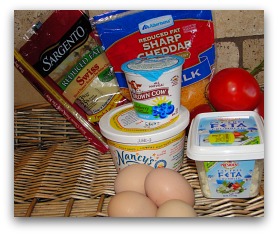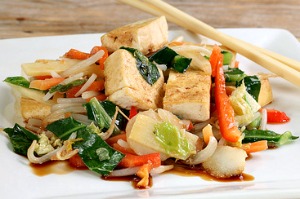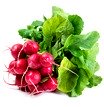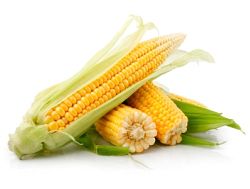Good Sources of Protein for Vegetarians
Good sources of protein for vegetarians: to some, that phrase might sound like an oxymoron, since so many people link protein primarily with meat. And meats and fish do contain considerable protein...but also some fat, hormones (meat), and mercury (certain fish). Luckily for those of us in the vegetarian/semi-vegetarian camp, protein comes in many "styles and colors." Here are some of those...
Dairy and Eggs

For vegetarians who aren't lactose intolerant, dairy
products can provide some good protein. And, because these products often
come in low-fat and non-fat versions, they don't have to add
catastrophically to your fat load.
But that will depend upon your choices, for not everyone "chooses" lower-fat versions of the old favorites. If that's sometimes you, it may pay to consider both cholesterol and calories the next time you're at the market. Although vegetarians are often on the slimmer side, there are chunky vegetarians as well. (Just sayin'...)
Milk
Perhaps
you're one of the hold-outs yourself? If so, perhaps you might consider
a gradual conversion. For example, nonfat and low-fat milk can taste
quite good with both dry and cooked cereals; maybe give those a try
every other cereal morning. And if you like the occasional cup of hot
chocolate, you may find that you hardly notice the difference between
whole and low/nonfat milk.
Plus, the lower-fat versions will likely be
way better for your arteries. Either way, you're looking at 8 grams of
protein per cup, which ain't too shabby. If you can, bring home organic milk products.
Yogurt
A
surprisingly versatile food, the Greek version is also quite rich in
protein: 15 to 20 grams per 6-ounce serving (which seems a rather large
serving, IMHO, but oh well). Regular yogurt weighs in at 9 to 10 grams
for the same amount. Tasty in smoothies, a good substitute for sour
cream in certain recipes, even a meal when fruit or veggies are added,
yogurt can fit into a lacto-ovo vegetarian kitchen quite nicely.
Cottage Cheese
At 14 grams per half cup, cottage cheese is a serious hitter with numerous applications. For example, toss some dry-curd or rinsed and drained cottage cheese into a green salad, and watch the protein content shoot up. Or that of waffles or pancakes when you add cottage cheese (or yogurt). And try some (drained first) in that lasagna you're making—or in other pasta dishes where it seems plausible. But, again, do consider low-fat/non-fat organic versions to spare your arteries and avoid added hormones.
Other Cheeses
So
many cheeses, so little time, right? If you're a "cheese head," you've probably sampled a broad variety: cheddar, gruyere, edam and
gouda, gorgonzola, mozzarella, havarti, jack, parmesan and romano, bri
and ricotta...to name but a few. All of these can be good
sources of protein...and a good many of them also "good" sources of
sodium and saturated fat.
Eggs
And let's
don’t forget eggs: 6 to 7 grams of protein each, depending upon their
size. As many would agree, a nice omelet or a few deviled eggs can taste
great now and then. Yes, there's some disagreement about how many we
should eat and how often, but nutritional gurus increasingly suggest
that we eat an egg or two now and then.
If you have health factors to
consider, however, it would be good to do further research and perhaps
consult with a nutritional expert. Also, those of us who do choose to eat eggs need to remain aware of our oil, butter, and
salt usage, as a heavy hand with these can quickly turn Dr. Jekyll into
Mr. Hyde.
Meat Substitutes
In the unlikely event that you're strangers, please say hello some other good sources of protein that, although vegetarian—sometimes even vegan—you need be neither to enjoy: soy products and seitan.

Soy Products
Both unfermented (tofu) and fermented (tempeh), soy products can be
quite good sources of protein. Tofu, for example, provides roughly 10
grams of protein per half cup—not as much as seitan, but still not bad.
If you don’t eat tofu yourself, is it because you can’t deal with the
texture? (Raising my hand here…) Click on this link for a couple of tips that might change your attitude and on this one for broader discussion of soy products.
Seitan
Made from wheat gluten, seitan packs quite a protein punch: roughly 20 grams per 3-ounce serving, stacking up pretty well against beef. Even better, it contains 70 fewer calories and minimal fat (unlike steak at 12 grams, most of it saturated). And—yay!—you can even make it at home from gluten flour. In a nutshell, seitan can be a significant source of protein, although obviously unsuited to the gluten-intolerant diner. Use it as you would chicken.
Who knew there were so
many good sources of protein among the plant-based foods? Now that you
do, perhaps cutting back on meat will begin to seem more practical...even perhaps worth a serious try. Ready to go for it?
Please understand that the material at this site is NOT medical advice, as I am neither doctor nor nutritionist. What I am is merely someone who's lived successfully on a vegetarian diet for many decades...and I transitioned from omnivore to vegetarian gradually. Do check with your doctor, though, if you're considering big changes to your own diet. Also, be sure to find a dependable source of Vitamin B12.
Living Vegetarian the Easy Way
Copyright 2010-2024. Lynda Edwards. All rights reserved.




